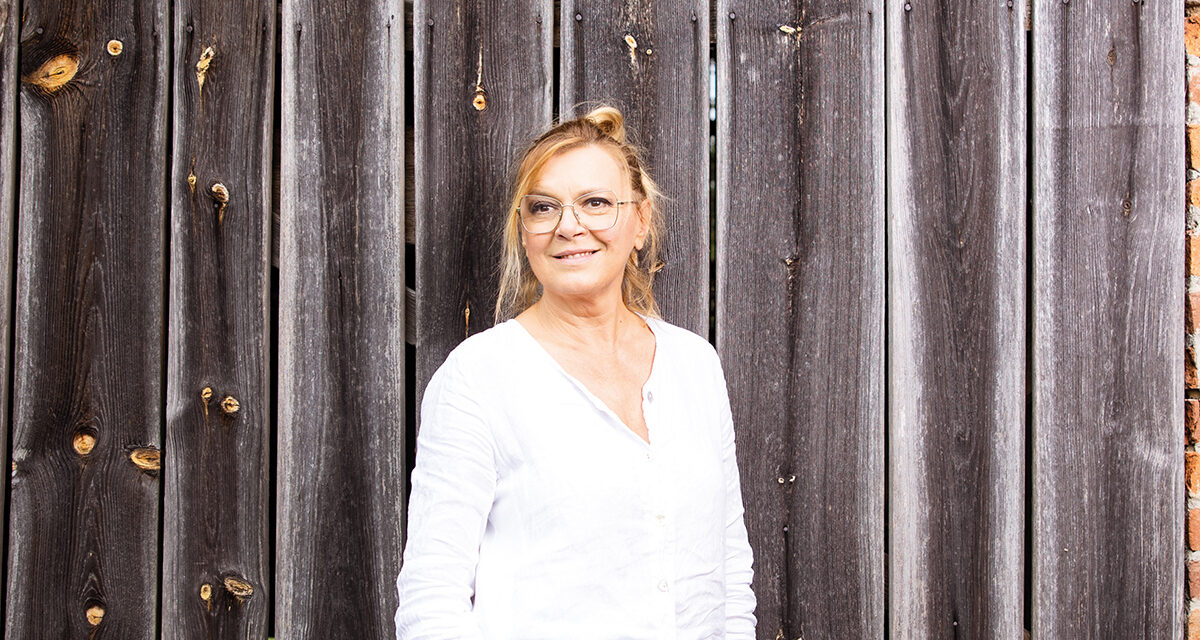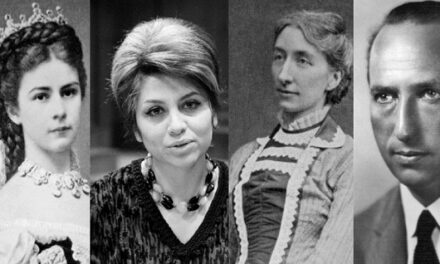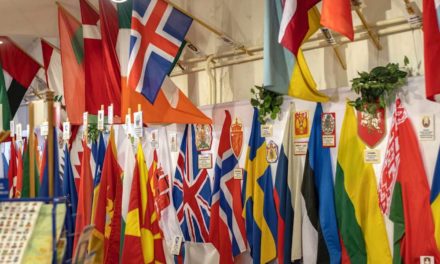Gastroidentity and peasant culture - interview with Marcsi Borbás, the gastroangel of all of us.
We got to know him through various TV shows, many of us have the cookbooks he annotated on our bookshelves, in recent years we have been able to follow how he develops his kitchen garden in Őrség, and most recently he also launched his own cosmetic products. The popular Hungarian presenter was in Csíkszék recently: he gave a lecture, took part in an audience meeting, filmed a show and recharged his batteries in the meantime.
The different stages of his life are nicely connected to each other, but what is closest to Marcsi Borbás?
My childhood defines me. I grew up in a village in Bácska, with two grandmothers, my parents were farmers. I grew up in a very sane life, my grandmother didn't buy anything from the store except sugar, flour and salt, but produced everything. And every piece of furniture, for example, was the work of my grandfather's hands. The hand gestures of my grandmother, who kneaded, stretched and baked every day, the sun shone into the kitchenette, I stood at the table and watched. We went out to the garden and there were vegetables and fruit, since we produced everything, even the herbs.
We worked a lot in the fields, and for as long as I can remember, I had to go to work just like an adult. In addition to work, we talked a lot in the fields... That's what I call a sane life, it stuck with me.
This feeling of life also echoes in his shows.
I find it very sad that everything is slowly being lost, everything is changing incredibly quickly. In just a few decades, we have reached the point where we are drowning the earth in garbage. How could a person change so much in such a short time? This hurts me, and that is why I think that knowledge must somehow be preserved and passed on, because I am convinced that this will be needed. And all this should be documented with the elderly, because if not, there will be nothing to touch. I am recording these handrails, because the description is different and a video is different. For example, when making a dough, if we describe it, we may not be able to make it, but if we see the movements, see the texture of how it should be folded, then it is easier for us. Now it's just a recipe, but it's important to keep it, because it's not just about eating.
Of course, it is also very important, but these recipes are emotional information. If you smell a cake or food, you will not think of food first, but of your parents, grandparents, aunt, godmother, and brother.
It is said that a man lives as long as he is remembered, as long as he is remembered. And that should not be lost. Just think about the kind of fast food or semi-prepared food that children get to eat today - respect for the exception - and this also means that they don't have the experience that their grandmother made this, that my mother made. Emotional foods, this is our gastroidentity, which carries many other things as well. It is also very important to take care of eating. Today, when we talk about culture, we don't think of peasant culture, and this is a big problem, because it allows us to live and eat healthily.
This, however, requires a deeper connection than what you have... What does the peasant lifestyle mean to you, what role does it play in the development of an environmentally conscious lifestyle?
What I'm trying to convey is that we should appreciate what we have inherited. We appreciate that we can grow vegetables, and we don't grow them because we can't buy them. If we start to cultivate a very small kitchen garden, we realize how small we are, and this teaches us great humility. And if we can't be in harmony with nature, we won't be able to do anything. It is important for people to feel again that they are part of nature.
Everyone has to find for themselves how they can live a more environmentally conscious life. Although it is already very late, we still have a chance to do something. We should look deeply into ourselves so that we do not further destroy our environment.
Plant apple trees instead of sedges, and you can't imagine anything more beautiful than a well-functioning vegetable garden. If you do not have the opportunity to do so, pay attention to the purchase. I don't buy sliced cold cuts and cheese, but I will slice the bread, cold cuts, and cheese. First of all, the laziness factors should be reduced. We cannot reduce our waste to zero, but we must strive to have as little as possible. It's very nice that many people in the city are trying to create gardens, there are community gardens, but I don't think it's the city's business. What if we didn't run into the supermarket, but bought food produced by peasant families living in the surrounding settlements?
I am an optimist, even though many people want an ornamental garden rather than a kitchen garden. This is absolutely not sustainable. Anyway, there is not much to do with a kitchen garden, you work 3-4 hours a week and just harvest.
You have to make a kitchen garden, produce compost! What a beautiful cycle! I harvest the vegetables, compost the stems, put them back in the spring, and harvest a portion of vegetables from them again. And it definitely has nutrients!
The appearance of cosmetics bearing the name of Marcsi Borbás was a novelty for me. An environmentally conscious lifestyle comes into play here as well.
Thanks to Mama Borbás, I have been very interested in plants and herbs since I was a child, and what effect each one has. I have been expanding this knowledge since I was a little girl. I don't eat poisoned fruits and vegetables. I live in a national park, and I didn't move there by accident. I didn't use any cosmetics until I was fifty, then I got a bunch of very flashy cosmetics, I read what was in them, and I was absolutely horrified. Why would I poison myself through my skin? I started looking at what could be done, and that's how a day-night cream was born for the first time. It's a natural product line, and since I have a Garden section, that's why the now eight-member product line got its name. When it comes to packaging, we also take care not to produce garbage.
The full interview can be read HERE!
Featured image: Árpád Földházi













